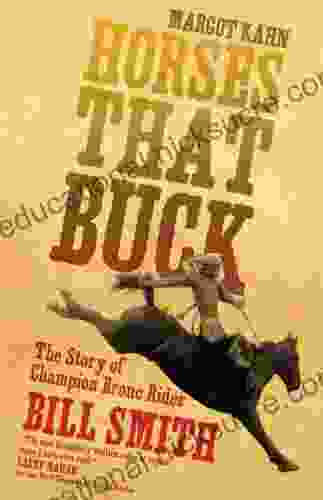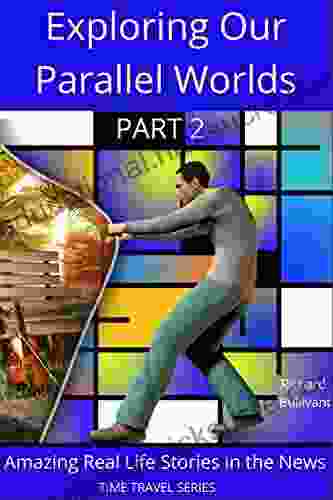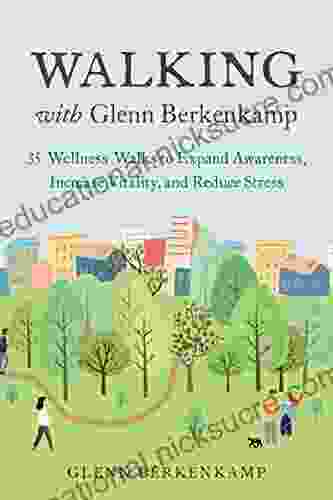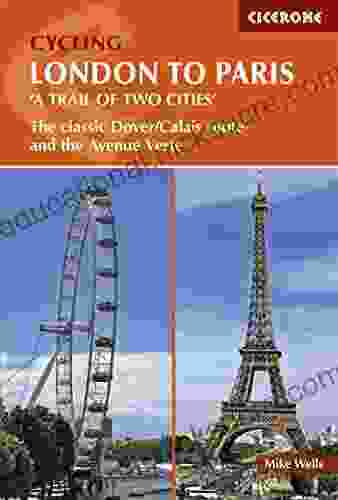Evolution, Religion, and the Nature of Society: A Comprehensive Analysis

The relationship between evolution, religion, and the nature of society is a complex and multifaceted one that has been debated for centuries. On the one hand, scientific evidence suggests that humans have evolved over millions of years through a process of natural selection. On the other hand, religious traditions often offer different accounts of human origins and purpose. These divergent perspectives have led to ongoing debates about the compatibility of science and religion, as well as the implications of evolutionary theory for our understanding of ourselves and our place in the world.
4.4 out of 5
| Language | : | English |
| File size | : | 5974 KB |
| Text-to-Speech | : | Enabled |
| Screen Reader | : | Supported |
| Enhanced typesetting | : | Enabled |
| Word Wise | : | Enabled |
| Print length | : | 278 pages |
| Lending | : | Enabled |
In this article, we will explore the historical, scientific, and cultural influences that have shaped our understanding of evolution, religion, and the nature of society. We will also examine the impact of these concepts on human behavior, social institutions, and the search for meaning.
Historical Influences
The concept of evolution has its roots in ancient Greek philosophy. However, it was not until the 19th century that Charles Darwin and Alfred Russel Wallace independently developed a scientific theory of evolution by natural selection.
Darwin's theory was based on his observations of the natural world, particularly the diversity of life forms and the similarities between different species. He proposed that all living organisms have evolved over time from a common ancestor through a process of natural selection. Natural selection is the process by which individuals with traits that make them better adapted to their environment are more likely to survive and reproduce, passing on their traits to their offspring.
Darwin's theory of evolution was revolutionary at the time. It challenged the prevailing view that the world was created by a divine being and that all species were fixed and unchanging.
Religious traditions have also had a significant influence on our understanding of evolution. Many religions offer different accounts of human origins and purpose. For example, the Christian tradition teaches that humans were created by God in his own image and that we are meant to live in harmony with each other and with the natural world.
The conflict between science and religion over the issue of evolution has been a source of debate for centuries. In the early 20th century, the Scopes Trial in the United States highlighted the tensions between these two worldviews.
Scientific Perspectives
The modern scientific understanding of evolution is based on a vast body of evidence from a variety of disciplines, including genetics, paleontology, and comparative anatomy.
Genetic evidence shows that all living organisms share a common ancestry. For example, humans share 98% of their DNA with chimpanzees. This high degree of genetic similarity indicates that humans and chimpanzees evolved from a common ancestor relatively recently.
Paleontological evidence also supports the theory of evolution. The fossil record shows that the Earth has been inhabited by a wide variety of life forms over time, and that these life forms have changed gradually over time. For example, the fossil record shows that the first hominids, or human-like creatures, appeared in Africa about 6 million years ago. These hominids gradually evolved into modern humans over time.
Comparative anatomy provides further evidence for evolution. The anatomical similarities between different species indicate that they share a common ancestry. For example, the forelimbs of humans, chimpanzees, and bats are all similar in structure, even though these animals have very different lifestyles.
Cultural Impact
The theory of evolution has had a profound impact on our culture. It has challenged our traditional views of the origins of life and the human race. It has also led to new insights into human behavior and the nature of society.
For example, evolutionary theory has been used to explain the development of human social behavior. Evolutionary psychologists argue that many human behaviors, such as cooperation, altruism, and aggression, can be explained by natural selection.
Evolutionary theory has also been used to understand the development of social institutions. Evolutionary sociologists argue that social institutions, such as marriage, family, and government, can be explained by natural selection.
The theory of evolution has also had a significant impact on the search for meaning. Many people have found that evolutionary theory provides a new and more satisfying understanding of the human condition. It offers a naturalistic account of our origins and purpose, without the need for supernatural intervention.
The relationship between evolution, religion, and the nature of society is a complex and multifaceted one. It is a relationship that has been shaped by historical, scientific, and cultural influences. As our understanding of these three concepts continues to evolve, so too will our understanding of ourselves and our place in the world.
The debate between science and religion over the issue of evolution is likely to continue for many years to come. However, it is important to remember that these two worldviews are not necessarily incompatible. It is possible to believe in both science and religion, and to find a way to reconcile the insights of both.
The theory of evolution offers a powerful and comprehensive account of the origins of life and the human race. It is a theory that has profoundly changed our understanding of ourselves and our place in the world. It is a theory that continues to inspire and challenge us, and one that will undoubtedly continue to shape our thinking for many years to come.
4.4 out of 5
| Language | : | English |
| File size | : | 5974 KB |
| Text-to-Speech | : | Enabled |
| Screen Reader | : | Supported |
| Enhanced typesetting | : | Enabled |
| Word Wise | : | Enabled |
| Print length | : | 278 pages |
| Lending | : | Enabled |
Do you want to contribute by writing guest posts on this blog?
Please contact us and send us a resume of previous articles that you have written.
 Fiction
Fiction Non Fiction
Non Fiction Romance
Romance Mystery
Mystery Thriller
Thriller SciFi
SciFi Fantasy
Fantasy Horror
Horror Biography
Biography Selfhelp
Selfhelp Business
Business History
History Classics
Classics Poetry
Poetry Childrens
Childrens Young Adult
Young Adult Educational
Educational Cooking
Cooking Travel
Travel Lifestyle
Lifestyle Spirituality
Spirituality Health
Health Fitness
Fitness Technology
Technology Science
Science Arts
Arts Crafts
Crafts DIY
DIY Gardening
Gardening Petcare
Petcare Andrew Robinson
Andrew Robinson Larry Jacobson
Larry Jacobson Joy Vines
Joy Vines Justin Fox Burks
Justin Fox Burks Jaimal Yogis
Jaimal Yogis Uma Dinsmore Tuli
Uma Dinsmore Tuli Richelle Mead
Richelle Mead Davida Hartman
Davida Hartman Kathrine Switzer
Kathrine Switzer Kari Kampakis
Kari Kampakis Jill Squyres Groubert Phd
Jill Squyres Groubert Phd Helene Henderson
Helene Henderson Harvey Motulsky
Harvey Motulsky Delphi Classics
Delphi Classics Omar D Lewis Sr
Omar D Lewis Sr Ira J Chasnoff
Ira J Chasnoff Kent Nerburn
Kent Nerburn Stephan Lee
Stephan Lee Stacey Lee
Stacey Lee Joya Goffney
Joya Goffney Marian Stamp Dawkins
Marian Stamp Dawkins Jay Arthur
Jay Arthur Andrew Hodges
Andrew Hodges Stanley L Jaki
Stanley L Jaki Shari Mezrah
Shari Mezrah Dan Orr
Dan Orr Ruta Sepetys
Ruta Sepetys Bill Pennington
Bill Pennington Daniel W Cunningham
Daniel W Cunningham Jon Paschetto
Jon Paschetto Erika V Shearin Karres
Erika V Shearin Karres Laurie David
Laurie David Donn F Draeger
Donn F Draeger Jennifer M Rosner
Jennifer M Rosner Ashley Schmitt
Ashley Schmitt Vivien Newman
Vivien Newman Tiffany Harelik
Tiffany Harelik Bronwen Skye
Bronwen Skye H A Lorentz
H A Lorentz V S Ramachandran
V S Ramachandran Antipodean Writer
Antipodean Writer Portia Macintosh
Portia Macintosh Geraldine Woods
Geraldine Woods Sue Fleming
Sue Fleming Stephen Howe
Stephen Howe Christopher Dunn
Christopher Dunn Kirk W Johnson
Kirk W Johnson Michio Kaku
Michio Kaku Jim Flynn
Jim Flynn Eli Maor
Eli Maor Ruth Bell Graham
Ruth Bell Graham Behrouz Moemeni
Behrouz Moemeni Rhonda V Magee
Rhonda V Magee Andrew Nahum
Andrew Nahum Vanessa A P
Vanessa A P Marsha Walker
Marsha Walker Zita Grant
Zita Grant Sebastian Deterding
Sebastian Deterding Andrew Moore
Andrew Moore Kris Holloway
Kris Holloway Robert Holdstock
Robert Holdstock Jon Gertner
Jon Gertner Andrew Lang
Andrew Lang Slavka Bodic
Slavka Bodic Chris Mcmullen
Chris Mcmullen Brianne Donaldson
Brianne Donaldson Wendy Bryden
Wendy Bryden Atul K Mehra
Atul K Mehra Jamie Christian Desplaces
Jamie Christian Desplaces Michael J Mauboussin
Michael J Mauboussin Rosalind Miles
Rosalind Miles Samara Caughey
Samara Caughey Chaz Scoggins
Chaz Scoggins Reid Sheftall M D
Reid Sheftall M D Margot Kahn
Margot Kahn Julie Lythcott Haims
Julie Lythcott Haims Justine Bateman
Justine Bateman Stephanie V W Lucianovic
Stephanie V W Lucianovic Sarah Digregorio
Sarah Digregorio Madeleine Roux
Madeleine Roux Daniel Tammet
Daniel Tammet Julia Cameron
Julia Cameron Dora Kurimay
Dora Kurimay Gordon Churchill
Gordon Churchill Tim Huffman
Tim Huffman Mark Vanhoenacker
Mark Vanhoenacker Antonio Pigafetta
Antonio Pigafetta Teresa M Twomey
Teresa M Twomey David Stipp
David Stipp John Macgregor
John Macgregor Andrew Hempstead
Andrew Hempstead Dan Werb
Dan Werb Michael Polanyi
Michael Polanyi Andrew Shaw
Andrew Shaw Nicholas Harvey
Nicholas Harvey George Washington Cable
George Washington Cable Arthur Kleinman
Arthur Kleinman Ron Hackett
Ron Hackett David Sowell
David Sowell David Hawkins
David Hawkins Kinley Macgregor
Kinley Macgregor Mawi Asgedom
Mawi Asgedom Dave Chambers
Dave Chambers Vibrant Publishers
Vibrant Publishers Carl Hart
Carl Hart Walter Martin
Walter Martin Cathy Kelly
Cathy Kelly Andrew J Wakefield
Andrew J Wakefield Quick Guide
Quick Guide Jim Hardy
Jim Hardy Bob Brier
Bob Brier Akil Palanisamy
Akil Palanisamy Eva Longoria
Eva Longoria Nick Estes
Nick Estes Winifred Gallagher
Winifred Gallagher Ben Foss
Ben Foss James Berry
James Berry Nicholas D Souza
Nicholas D Souza George H Odell
George H Odell K L Walther
K L Walther Fred Rogers
Fred Rogers Sarah Edmondson
Sarah Edmondson Sally Bjornsen
Sally Bjornsen Seabury Quinn
Seabury Quinn Andrew Zerling
Andrew Zerling Patrick Barrett
Patrick Barrett Mona Liza Santos
Mona Liza Santos Rami Ungar
Rami Ungar Jennie Lynn Gillham
Jennie Lynn Gillham Anne Marie Scully
Anne Marie Scully Elijah N Daniel
Elijah N Daniel Damon Wiseley
Damon Wiseley Andrew X Pham
Andrew X Pham Dustin Howe
Dustin Howe Ehsan Masood
Ehsan Masood Slow Sprint
Slow Sprint Gabriel Weinberg
Gabriel Weinberg Sean B Carroll
Sean B Carroll Sally Cook
Sally Cook Eddy Starr Ancinas
Eddy Starr Ancinas Emily Kerr
Emily Kerr J D Lenzen
J D Lenzen Tony Ray
Tony Ray Jennifer Lw Fink Rn Bsn
Jennifer Lw Fink Rn Bsn Catherine Gildiner
Catherine Gildiner Nelson L Schuman
Nelson L Schuman Alexander Bennett
Alexander Bennett Clinton Anderson
Clinton Anderson David A French
David A French William Ma
William Ma Sheryl Feinstein
Sheryl Feinstein Cassandra Erkens
Cassandra Erkens Dan Allan
Dan Allan Yasuharu Okuda
Yasuharu Okuda William E Hearn
William E Hearn Charlie Jones
Charlie Jones Christopher Hodapp
Christopher Hodapp Gordon Wright
Gordon Wright Sam Fels
Sam Fels Mike Cohn
Mike Cohn Educational Brain Games
Educational Brain Games Gary Todd
Gary Todd Robert N Wiedenmann
Robert N Wiedenmann Michaela Deprince
Michaela Deprince Michael Epperson
Michael Epperson Michael J Thompson
Michael J Thompson Chris Dowhan
Chris Dowhan Garth Nix
Garth Nix Sian Beilock
Sian Beilock J P Mcevoy
J P Mcevoy S G Taylor
S G Taylor Ruth Haley Barton
Ruth Haley Barton Seth J Gillihan Phd
Seth J Gillihan Phd John Lofty Wiseman
John Lofty Wiseman Marianne Ryan
Marianne Ryan Rudy Rucker
Rudy Rucker J Richard Hackman
J Richard Hackman Elianor M A
Elianor M A Lawrence Dawson
Lawrence Dawson Angela Berkfield
Angela Berkfield Roger Highfield
Roger Highfield Susana Wald
Susana Wald Kirk Goldsberry
Kirk Goldsberry Leslie Klenke
Leslie Klenke Jonathan C Slaght
Jonathan C Slaght Peter Kaminsky
Peter Kaminsky Jerry M Gutlon
Jerry M Gutlon Kevin Thomas
Kevin Thomas Laird Scranton
Laird Scranton Andy Burnham
Andy Burnham Cary Hanson
Cary Hanson Edward C Klatt
Edward C Klatt Gordon W Green
Gordon W Green Henry Fielding
Henry Fielding Emilie Bailey
Emilie Bailey Marissa Meyer
Marissa Meyer Laird Hamilton
Laird Hamilton Dawn Isaac
Dawn Isaac Ross Bernstein
Ross Bernstein David Jefferson
David Jefferson Sam Maggs
Sam Maggs Judith A Cohen
Judith A Cohen Luca Brambilla
Luca Brambilla Aaron Edkins
Aaron Edkins Heidi Dais
Heidi Dais Mark Mcclusky
Mark Mcclusky Sean Bloomfield
Sean Bloomfield Jerry Z Muller
Jerry Z Muller Debbie Felkins Tamez
Debbie Felkins Tamez Prosanta Chakrabarty
Prosanta Chakrabarty William Gurstelle
William Gurstelle Jason R Rich
Jason R Rich Carla Hannaford
Carla Hannaford Brian L Silver
Brian L Silver Fourth Edition Kindle Edition
Fourth Edition Kindle Edition Andrius Jac
Andrius Jac Robert M Schoch
Robert M Schoch Rachel Lynn Solomon
Rachel Lynn Solomon Sadie Robertson
Sadie Robertson Lucy Atkins
Lucy Atkins Shannon Brown
Shannon Brown Carolyn Coker Ross
Carolyn Coker Ross Fatime Losonci
Fatime Losonci Eric H Cline
Eric H Cline Martin Woodward
Martin Woodward Andrew Peterson
Andrew Peterson Madeleine L Engle
Madeleine L Engle Sara T Gibbs
Sara T Gibbs George W Hart
George W Hart Nigel Calder
Nigel Calder Jakob Schwichtenberg
Jakob Schwichtenberg Hp Newquist
Hp Newquist Tina H Boogren
Tina H Boogren Chelsea Johnson
Chelsea Johnson Dr John Hockey
Dr John Hockey Jonathan Bennett
Jonathan Bennett Texes Exam Secrets Test Prep Team
Texes Exam Secrets Test Prep Team Tami Fox
Tami Fox Sendhil Mullainathan
Sendhil Mullainathan Andrew Hartman
Andrew Hartman Erin Macpherson
Erin Macpherson Neil Harman
Neil Harman Molly E Lee
Molly E Lee John Eberhart
John Eberhart Robert Kurson
Robert Kurson Ilene And Gary Modica
Ilene And Gary Modica Jessie Cal
Jessie Cal Chaim Potok
Chaim Potok Bruno David
Bruno David Christine Pearson Casanave
Christine Pearson Casanave Erwin Schrodinger
Erwin Schrodinger Lynn Painter
Lynn Painter William Mark Huey
William Mark Huey Sharae Moore
Sharae Moore John Sefton
John Sefton Nancy Frey
Nancy Frey Michele Amitrani
Michele Amitrani Rhianna Pratchett
Rhianna Pratchett Simson L Garfinkel
Simson L Garfinkel Thomas Clarkson
Thomas Clarkson Edgar H Schein
Edgar H Schein Christopher O Shaughnessy
Christopher O Shaughnessy Justine Bold
Justine Bold T H Lain
T H Lain Claiborne Young
Claiborne Young Michael F Roizen
Michael F Roizen Rainer Martens
Rainer Martens Beverly Asante Puschmann
Beverly Asante Puschmann Bruce H Lipton
Bruce H Lipton Christine Moore
Christine Moore Carolyn S Schroeder
Carolyn S Schroeder Carson Mccullers
Carson Mccullers Shannon Van Den Berg
Shannon Van Den Berg L Kathleen Mahan
L Kathleen Mahan Clare Keyes
Clare Keyes Bill Dance
Bill Dance Monica Clyde
Monica Clyde M L Ray
M L Ray Nadia Shammas
Nadia Shammas Andrew Hudson
Andrew Hudson Nancy Wainer Cohen
Nancy Wainer Cohen Jared Benson
Jared Benson Lisa Cron
Lisa Cron Paul Davies
Paul Davies Peggy Orenstein
Peggy Orenstein Helene St James
Helene St James David Carrasco
David Carrasco Andrew Heywood
Andrew Heywood Rosicrucian Order Amorc
Rosicrucian Order Amorc John H Carroll
John H Carroll Thomas F Hornbein
Thomas F Hornbein Andrew Stellman
Andrew Stellman Andy Ankowski
Andy Ankowski Mark Hyman
Mark Hyman Lisa Bevere
Lisa Bevere Rita Jablonski
Rita Jablonski Janis Abrahms Spring
Janis Abrahms Spring Nina Varela
Nina Varela Marie Sherlock
Marie Sherlock John R Anderson
John R Anderson Emily Wibberley
Emily Wibberley Charles Cooper
Charles Cooper Miles Smeeton
Miles Smeeton Teresa Palmer
Teresa Palmer Rick Scoppe
Rick Scoppe Dawne Archer
Dawne Archer James P Sethna
James P Sethna Stephen James
Stephen James Dennis J Stanford
Dennis J Stanford Becky Albertalli
Becky Albertalli Loris Chen
Loris Chen Michelle Madow
Michelle Madow Pseudo Nym
Pseudo Nym N S Wikarski
N S Wikarski Anthony Bishop Lmft
Anthony Bishop Lmft Mary H K Choi
Mary H K Choi Annette K Larsen
Annette K Larsen Jenny Randles
Jenny Randles Rachel E Spector
Rachel E Spector Kevin Shea
Kevin Shea Edmund Nequatewa
Edmund Nequatewa Melanie Burnell
Melanie Burnell Howling Moon Books
Howling Moon Books John Atherton
John Atherton Stephon Alexander
Stephon Alexander Bridgit Danner Lac
Bridgit Danner Lac Ruth E Van Reken
Ruth E Van Reken Jim Burnett
Jim Burnett Diane R Gehart
Diane R Gehart Carl Petersen
Carl Petersen Mark Needham
Mark Needham William J Broad
William J Broad Jason William
Jason William Lauren James
Lauren James Linda Whitenton
Linda Whitenton Tanya Crossman
Tanya Crossman Elizabeth Walter
Elizabeth Walter Guy Windsor
Guy Windsor Rupert Sheldrake
Rupert Sheldrake Paul Seabright
Paul Seabright Mallory Striesfeld Ms Lpc
Mallory Striesfeld Ms Lpc Gina M Biegel
Gina M Biegel Joey Rive
Joey Rive Sarah Pinborough
Sarah Pinborough Jay Sokolovsky
Jay Sokolovsky Ed Rosenthal
Ed Rosenthal Kevin Anderson
Kevin Anderson Stephen Prata
Stephen Prata Nicholas J Higham
Nicholas J Higham Shonda Rhimes
Shonda Rhimes Shannon Jensen
Shannon Jensen Gladstone Califf
Gladstone Califf Brian Grossenbacher
Brian Grossenbacher Benedict Goleman
Benedict Goleman Stephen Cole
Stephen Cole Xan Barksdale
Xan Barksdale John Daido Loori
John Daido Loori Andrew Lawler
Andrew Lawler Sharon A Hansen
Sharon A Hansen Sarah Castille
Sarah Castille Morten Lund
Morten Lund Tom Chesshyre
Tom Chesshyre Steve Lage
Steve Lage Connie Goldsmith
Connie Goldsmith Lisa Roberts
Lisa Roberts Richard Twiss
Richard Twiss Claire Ahn
Claire Ahn Frances A Yates
Frances A Yates Jamie Thornton
Jamie Thornton Chris Rodell
Chris Rodell Mike Wells
Mike Wells Helen O Neil
Helen O Neil Gila Leiter
Gila Leiter Christian Heath
Christian Heath Jerusha Clark
Jerusha Clark Rob Eastaway
Rob Eastaway Andrew M Greeley
Andrew M Greeley Joseph Bronson
Joseph Bronson John Mcphee
John Mcphee Mark Lester
Mark Lester Kay Pranis
Kay Pranis Lauren Kate
Lauren Kate Patrick Felicia
Patrick Felicia Dan Anderson
Dan Anderson Des Hewitt
Des Hewitt Rolf Dobelli
Rolf Dobelli Dr Sarah Mitchell
Dr Sarah Mitchell Sabrina Chevannes
Sabrina Chevannes Mark Cannizzaro
Mark Cannizzaro Stan Tekiela
Stan Tekiela Hope Jahren
Hope Jahren Richard Bullivant
Richard Bullivant Monty Roberts
Monty Roberts Palle Yourgrau
Palle Yourgrau Maggie Ryan
Maggie Ryan Marcus Tomlinson
Marcus Tomlinson Suzanne Van Atten
Suzanne Van Atten Peter D Jeans
Peter D Jeans Jack David Eller
Jack David Eller Master Wong
Master Wong Touko Amekawa
Touko Amekawa Sol Adoni
Sol Adoni Nick Jaffe
Nick Jaffe Jen Benson
Jen Benson Timothy Ferris
Timothy Ferris Tom Holland
Tom Holland Linda Goldberg
Linda Goldberg Glenn Berkenkamp
Glenn Berkenkamp Leigh Bernacchi
Leigh Bernacchi Carl Allchin
Carl Allchin Piero Ferrucci
Piero Ferrucci P Anastasia
P Anastasia Mary Sheedy Kurcinka
Mary Sheedy Kurcinka Andrew Jamieson
Andrew Jamieson Pawel Guziejko
Pawel Guziejko Diane Tober
Diane Tober Rory Stewart
Rory Stewart Daniel D Fox
Daniel D Fox John Helyar
John Helyar M J Abadie
M J Abadie Caroline Finnerty
Caroline Finnerty Daniel Mark Brown
Daniel Mark Brown Peter Compton
Peter Compton Andrew H Knoll
Andrew H Knoll Bryan Sykes
Bryan Sykes Guns Ammo
Guns Ammo Andrew Phillip Smith
Andrew Phillip Smith Mirabai Starr
Mirabai Starr Judy Ford
Judy Ford Samuel Hideo Yamashita
Samuel Hideo Yamashita Carla Killough Mcclafferty
Carla Killough Mcclafferty Gene Stone
Gene Stone James D Watson
James D Watson Aristeidis Bampakos
Aristeidis Bampakos Melisenda Edwards
Melisenda Edwards Philip Reeve
Philip Reeve Jordan Ellenberg
Jordan Ellenberg Rolf Potts
Rolf Potts Fiona Higgins
Fiona Higgins Stephen Rea
Stephen Rea Hugh P Mckenna
Hugh P Mckenna Brock Lesnar
Brock Lesnar Tim Clarkson
Tim Clarkson Claire Phillips
Claire Phillips Tom Rosenbauer
Tom Rosenbauer Vincent Norman
Vincent Norman Gordon Webster
Gordon Webster Ricky Roberts Iii
Ricky Roberts Iii K A Linde
K A Linde Xavier P Hunter
Xavier P Hunter Jonathan Scott
Jonathan Scott Mark Vella
Mark Vella J K Rowling
J K Rowling Ernest Becker
Ernest Becker Liz Prince
Liz Prince Sadhguru
Sadhguru Andy Crouch
Andy Crouch Christine Carter
Christine Carter W Michael Kelley
W Michael Kelley Lisa Silverman
Lisa Silverman Carolyn Savage
Carolyn Savage Andrew Reeves
Andrew Reeves Kuldeep Singh
Kuldeep Singh Ginger Scott
Ginger Scott Luna Fox
Luna Fox Howard Thurman
Howard Thurman Ronald T Kneusel
Ronald T Kneusel E K Johnston
E K Johnston Tom Doak
Tom Doak Christopher Vaughan
Christopher Vaughan Rosita Boland
Rosita Boland Mikael Krief
Mikael Krief Rachel Pepper
Rachel Pepper Adam Minter
Adam Minter Charles Darwin
Charles Darwin Melody Groves
Melody Groves Jessica Speer
Jessica Speer C Todd Lombardo
C Todd Lombardo Betty Smith
Betty Smith Andrew Warnes
Andrew Warnes Briana Wiles
Briana Wiles Lauren Conrad
Lauren Conrad Damon B Akins
Damon B Akins Marcos Romero
Marcos Romero Timothy Gordon
Timothy Gordon Jeffro Johnson
Jeffro Johnson Andrew Thompson
Andrew Thompson Donna Tartt
Donna Tartt Elizabeth Acevedo
Elizabeth Acevedo Maggie Stiefvater
Maggie Stiefvater Richard G Klein
Richard G Klein Bryan Mellonie
Bryan Mellonie The Car Crash Detective
The Car Crash Detective Tom Bertrand
Tom Bertrand Natalie Babbitt
Natalie Babbitt James R Hansen
James R Hansen W Somerset Maugham
W Somerset Maugham Kathleen Huggins
Kathleen Huggins Robert Parris Moses
Robert Parris Moses Michael Barela
Michael Barela Jennie Erin Smith
Jennie Erin Smith Zhongxian Wu
Zhongxian Wu
Light bulbAdvertise smarter! Our strategic ad space ensures maximum exposure. Reserve your spot today!

 Mark MitchellNarrative Account of the First Circumnavigation: A Dover on Travel Adventure
Mark MitchellNarrative Account of the First Circumnavigation: A Dover on Travel Adventure
 Gene SimmonsEfficiently Define, Launch, and Manage Infrastructure as Code Across Various...
Gene SimmonsEfficiently Define, Launch, and Manage Infrastructure as Code Across Various... Ignacio HayesFollow ·16.9k
Ignacio HayesFollow ·16.9k Frank MitchellFollow ·8.5k
Frank MitchellFollow ·8.5k Josh CarterFollow ·18.7k
Josh CarterFollow ·18.7k Dennis HayesFollow ·2.9k
Dennis HayesFollow ·2.9k Enrique BlairFollow ·8k
Enrique BlairFollow ·8k Richard SimmonsFollow ·14.7k
Richard SimmonsFollow ·14.7k Damon HayesFollow ·13.8k
Damon HayesFollow ·13.8k Yasushi InoueFollow ·11.1k
Yasushi InoueFollow ·11.1k

 Craig Blair
Craig BlairThe Story of Champion Bronc Rider Bill Smith: A Legacy of...
In the annals of rodeo...

 H.G. Wells
H.G. WellsAmazing Real Life Stories In The News
The news is often...

 Jordan Blair
Jordan Blair35 Wellness Walks to Expand Awareness, Increase Vitality,...
In an era where technology...

 Edward Reed
Edward ReedCycling London to Paris: An Epic Adventure in the Making
Are you ready for the...

 Edgar Hayes
Edgar HayesEveryday Steps For Putting Technology In Its Proper Place
Are you constantly...

 Mitch Foster
Mitch FosterSat Math Mastery Advanced Algebra Geometry And Statistics
SAT Math Mastery Advanced Algebra Geometry...
4.4 out of 5
| Language | : | English |
| File size | : | 5974 KB |
| Text-to-Speech | : | Enabled |
| Screen Reader | : | Supported |
| Enhanced typesetting | : | Enabled |
| Word Wise | : | Enabled |
| Print length | : | 278 pages |
| Lending | : | Enabled |








